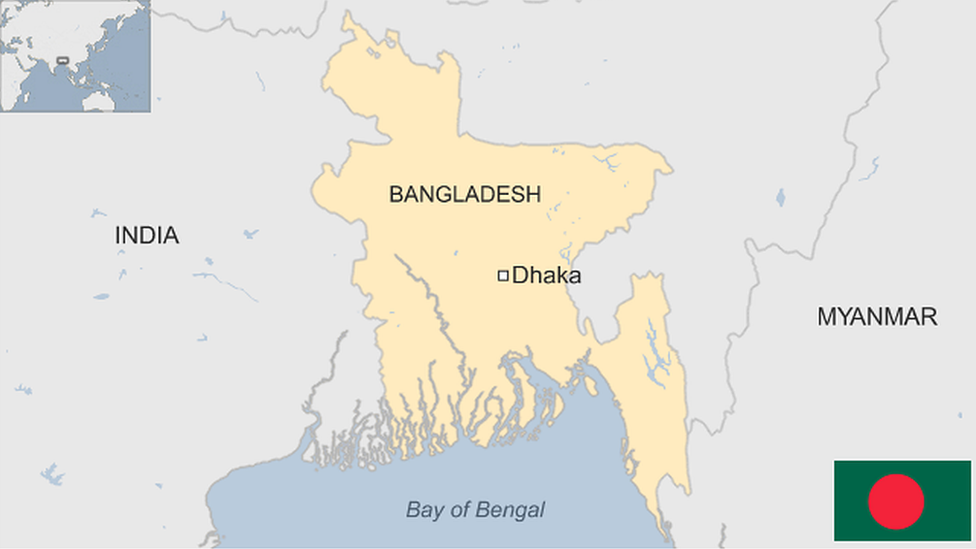Deadly Cyclone Mora hits Bangladesh with high winds and rain
- Published
Cyclone Mora battered coastal villages in the south-east of the country
Cyclone Mora has hit the south-eastern coast of Bangladesh, killing at least six people.
Most of them were killed by falling trees in the districts of Cox's Bazar and Rangamati, officials told the BBC.
Hundreds of houses were fully or partly damaged, the officials said. Significant damage is reported in refugee camps housing Rohingya Muslims from neighbouring Myanmar.
The authorities have moved hundreds of thousands of people to shelters.
A farmer from Cox's Bazar, Rashid Mia, told the BBC he had lost everything: "The house is gone, all the furniture has also gone. The cyclone damaged my farm equipment. We came to this shelter just to survive."

About 20,000 houses in refugee camps for Rohingya were damaged, community leader Abdus Salam told AFP news agency.
"In some places, almost every shanty, homemade of tin, bamboo and plastic, has been flattened," Mr Salam added. "Some people were injured, but no-one is dead [in the camps]."
Cyclone Mora made landfall at 06:00 local time (00:00 GMT) between the fishing port of Cox's Bazar and the city of Chittagong, with winds of up to 117 km/h (73mph), the country's meteorological department said, external.
It then weakened as it moved north, heading into India.
Cyclone Mora makes landfall in Bangladesh
In Bangladesh, people were evacuated to shelters, schools and government offices.
Fishing boats and trawlers have been advised to remain in shelters until the late evening. Flights in the area have been cancelled.
Large camps have been set up in Cox's Bazar for hundreds of thousands of Rohingya who have fled violence in Myanmar.
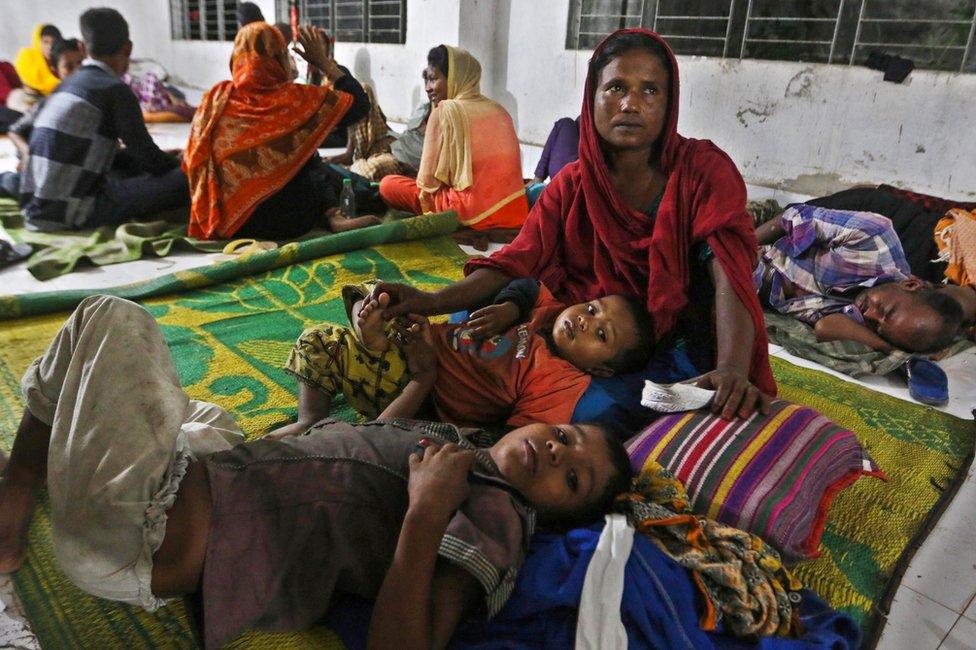
Hundreds of thousands of Bangladeshis have been moved to cyclone shelters
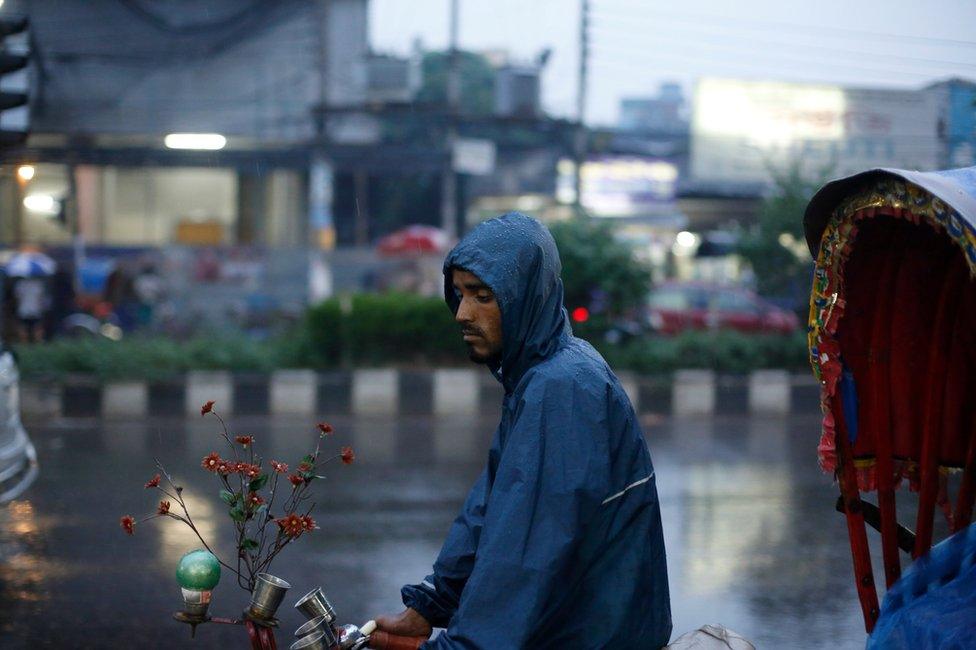
The capital Dhaka saw rainy weather in the lead-up to the storm
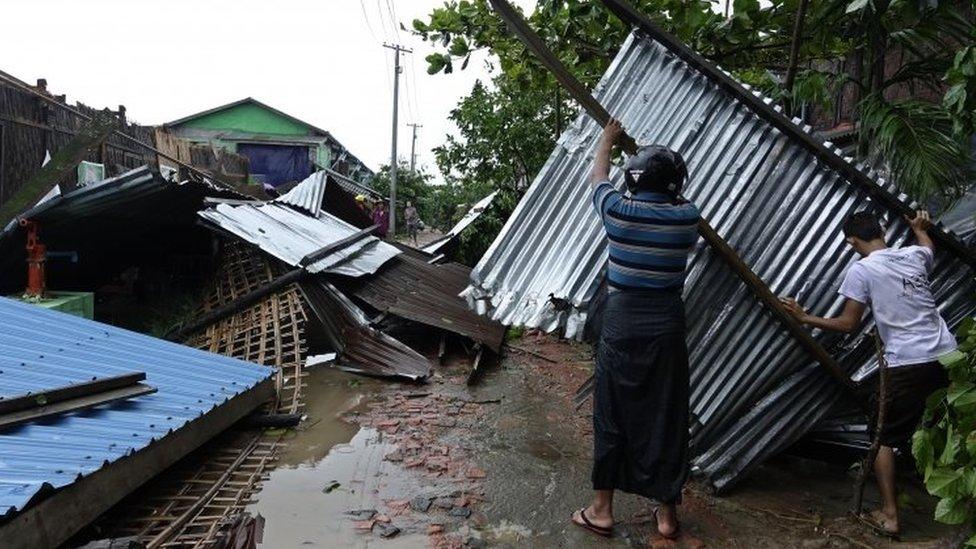
The storm also damaged a number of houses in Sittwe, western Myanmar
A number of houses were also damaged in western Myanmar.
The Bay of Bengal is prone to storms and Bangladesh is often hit by severe weather during the monsoon season, from the middle to the end of the year.
Last year, Cyclone Roanu hit coastal Bangladesh, leaving at least 24 people dead.
- Published30 May 2017
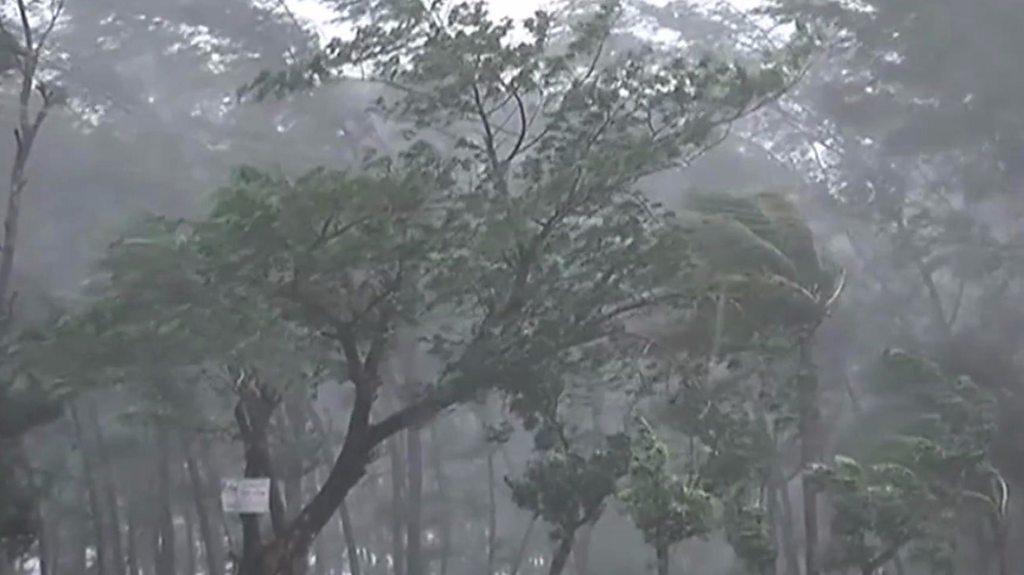
- Published29 May 2017
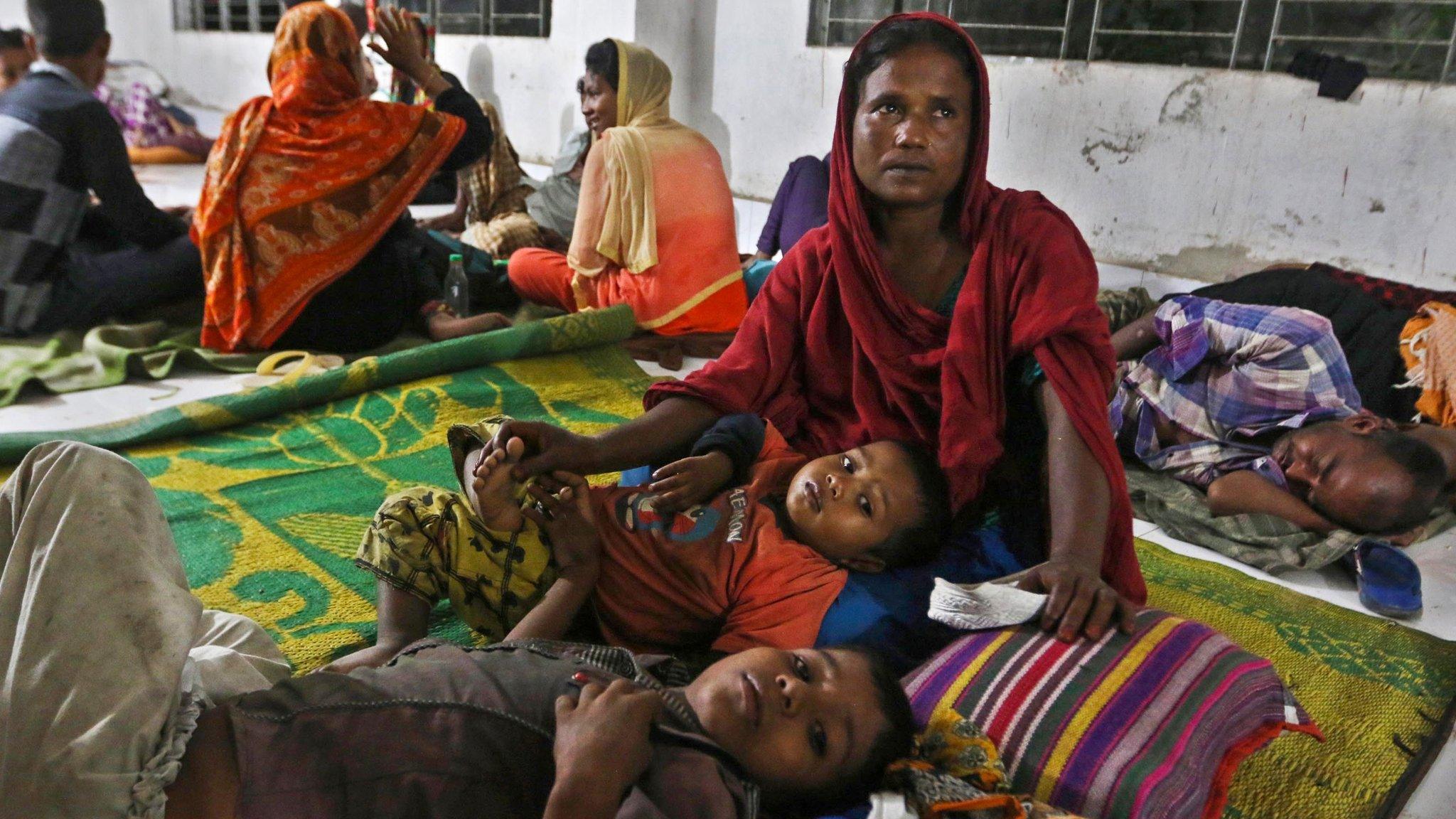
- Published28 May 2017
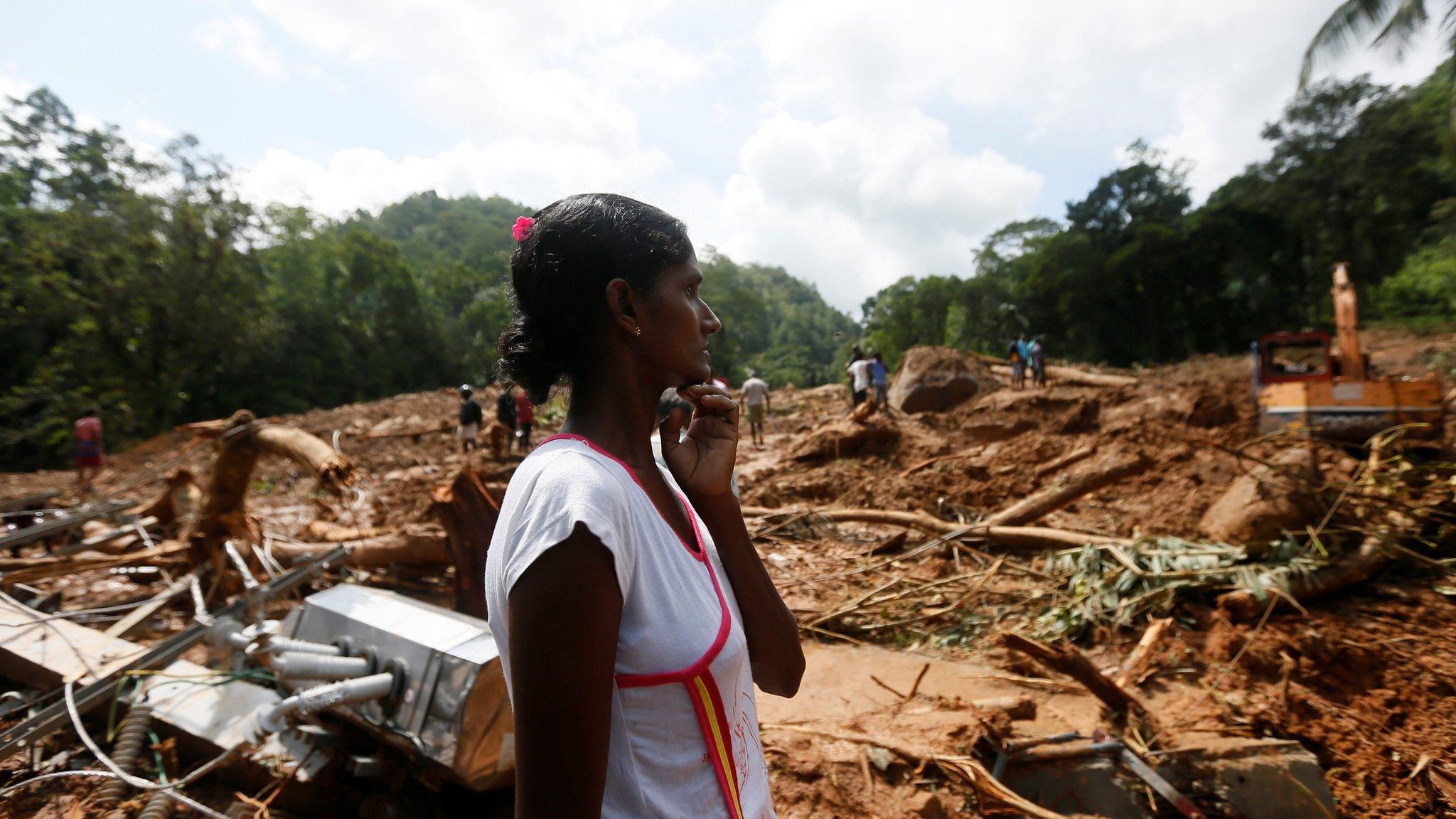
- Published10 March
